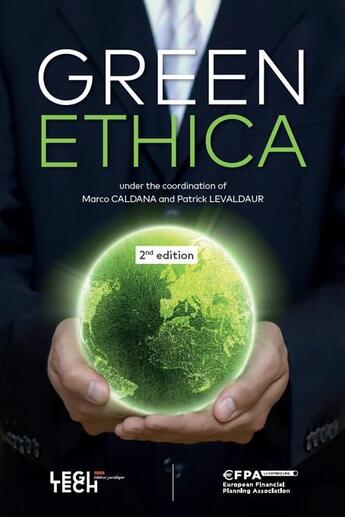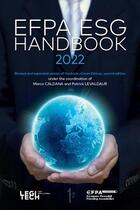-
Date de parution : 11/01/2022
-
Editeur :
Legitech
-
EAN : 9782919814237
-
Série :
(-)
-
Support :
Papier
Résumé:
As the Trump administration has proven by the past, scepticism is always present when it comes to climate change and the impact of human activity on it. Scepticism is also present when we talk about ESG criteria or Sustainable Finance. Around one third of the finance professionals view the... Voir plus
As the Trump administration has proven by the past, scepticism is always present when it comes to climate change and the impact of human activity on it. Scepticism is also present when we talk about ESG criteria or Sustainable Finance. Around one third of the finance professionals view the Environmental, Social and Governance through the lens of negative screening without trying to understand the deeper context.Globally, and similar to climate change, scepticism on Sustainable Finance is massively due to lack of knowledge and lack of clear and common definitions for its key concepts. How many people talk about Sustainable Finance without having a clear point of view on the issue ?Thanks to regulatory pressures and public opinion, Sustainable Finance is becoming THE new standard for financial centers across Europe. However, this lack of knowledge and not having a common basis are still present. Everybody knows what is an equity or a bond but few have a clear understanding of Green Bonds, Impact Investing or positive or negative screening? To fight against such skepticism, education, as usual, will be an essential tool to creating standards in Sustainable Finance.Initiatives such as the EFPA ESG Advisor certification, which was launched in 2021 in 13 countries across Europe by the European Financial Planning Association (EFPA) can help to close the gap between the current level of information and the level necessary due to increasing regulatory requirements around the integration of ESG criterion.It is with this desire to have a deeper understanding that EFPA Luxembourg publishes this manual. To achieve our aim and build this project in a record time of only four months, we have decided to open this endeavour to a wide range of contributors from different backgrounds. The goal was to portray the most diverse landscape of what Sustainable Finance is today, and what it could be tomorrow. We approached this project with the desire to give flexibility to the authors while, at the same time, ensuring all aspects of the matter at hand were covered. Special thanks go to all the contributors for their amazing intellectual effort. We believe this will provide invaluable information to those who are interested in Sustainable Finance.Although the world of Sustainable Finance is constantly evolving, this book offers some important insights into concepts regarding the current issues linked to Green Finance as well as the future development of market trends and ESG criteria integration. It also emphasizes the essential features of regulation, which is becoming more and more sophisticated.From the history of Sustainable Finance to its current and future regulatory environment, from the influence of the Corporate Social Responsibility to the integration of the ESG criterion in the investment processes, from the products already available on the market for creating greener portfolios to the next challenges the financial centers will be asked to solve, this handbook offers a 360° point of view over the landscape of the Green Finance.We hope this four-month journey will help the reader to have a better understanding on what Sustainable Finance means, looking at its framework, its aims and its challenges. I wish you a pleasant reading.
Donner votre avis















